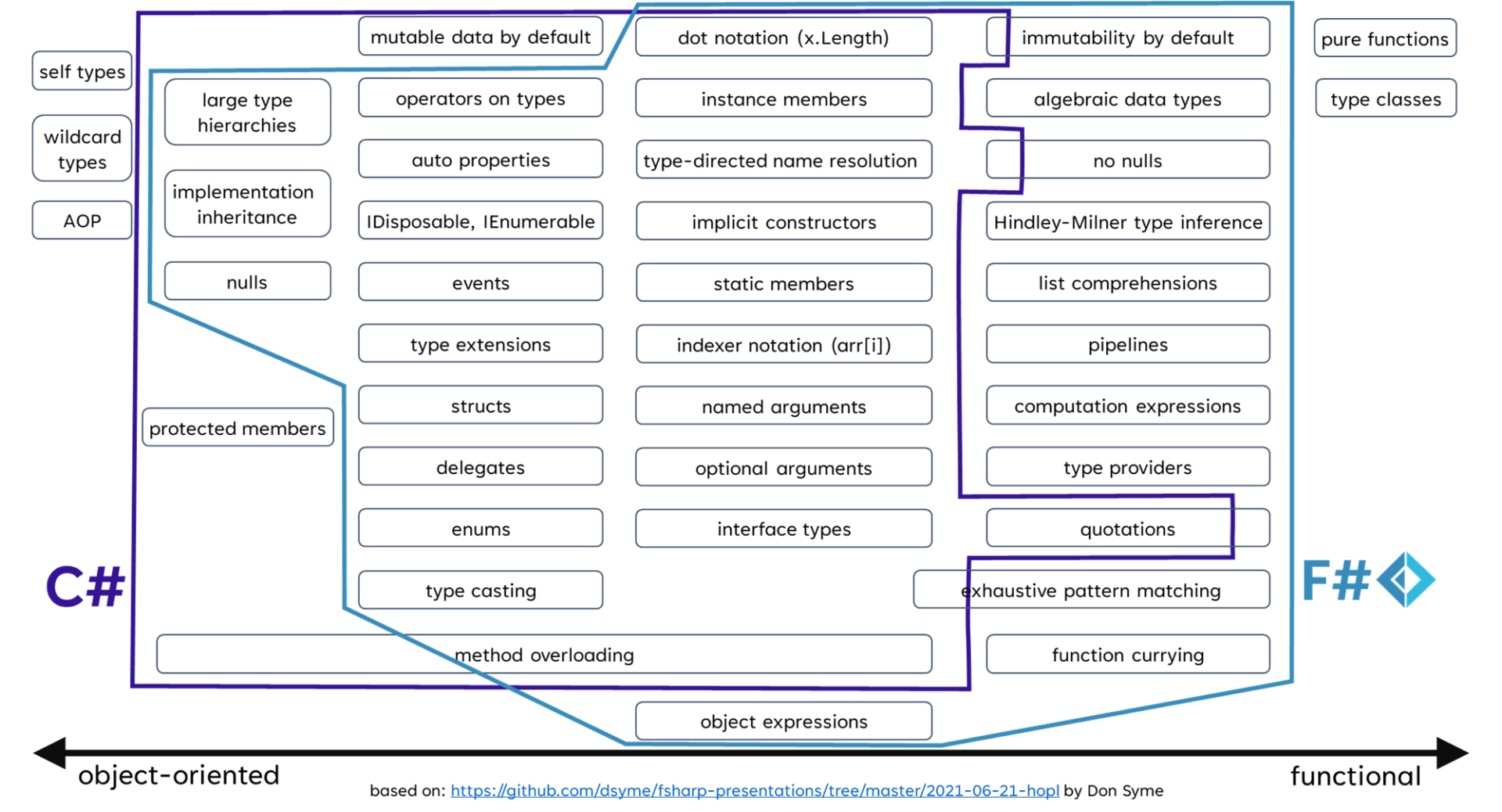

Myths about F#: F# is for FP, C# for OOP
source link: https://www.planetgeek.ch/2023/02/22/myths-about-f-f-is-for-fp-c-for-oop/
Go to the source link to view the article. You can view the picture content, updated content and better typesetting reading experience. If the link is broken, please click the button below to view the snapshot at that time.

Myths about F#: F# is for FP, C# for OOP

Sometimes when I talk to C# developers about F#, they say they don’t want to switch to a functional programming language. When I reply that F# is my favourite object-oriented programming language, they look a bit puzzled. They typically think that F# is for functional programming, while C# is for object-oriented programming. And this is wrong!
Both C# and F# support object-oriented and functional programming up to a certain level. One can program in a functional style in C# by defining functions and using lambdas or pattern matching. Or one can use classes and interfaces in F#.
The source of the myth and some history
When C# 1.0 was released, there were no lambdas, no Funcs, and no pattern matching. It was a typical object-oriented language of its time. In C# 3.0, lambda expressions were introduced (see The history of C#). This started C#’s journey towards more and more features typically found in functional-programming languages. So C# has its roots in OOP and added many FP features over the years.
One design goal of F# was to provide great interoperability with C#. So F# had to know about classes and interfaces from its start. F# was a hybrid language from its beginning (see The Early History of F#). However, F# was marketed by Microsoft for many years as a functional-first programming language. They realised that most people understand functional-first as functional and changed their marketing of F# accordingly.
OOP and FP features provided by C# and F#
I tried to summarize the OOP and FP capabilities of C# and F# in the following diagram.
As you can see, F# supports almost all OO features that C# supports – while C# supports (currently) only a small subset of functional programming features. Note that F# supports an object-oriented feature that C# doesn’t have: object expressions.
Also, note that there are OOP and FP features that neither C# nor F# support.
And in case you are a C# developer and wonder what quotations are: they are called expressions in C#.
Feedback
There are a couple of features missing in the diagram above:
- Partial classes and methods (only supported by C#)
- Contra/Covariance (only supported in C#)
- Source Generators (C#), for F# there is Myriad
</div
Recommend
About Joyk
Aggregate valuable and interesting links.
Joyk means Joy of geeK
